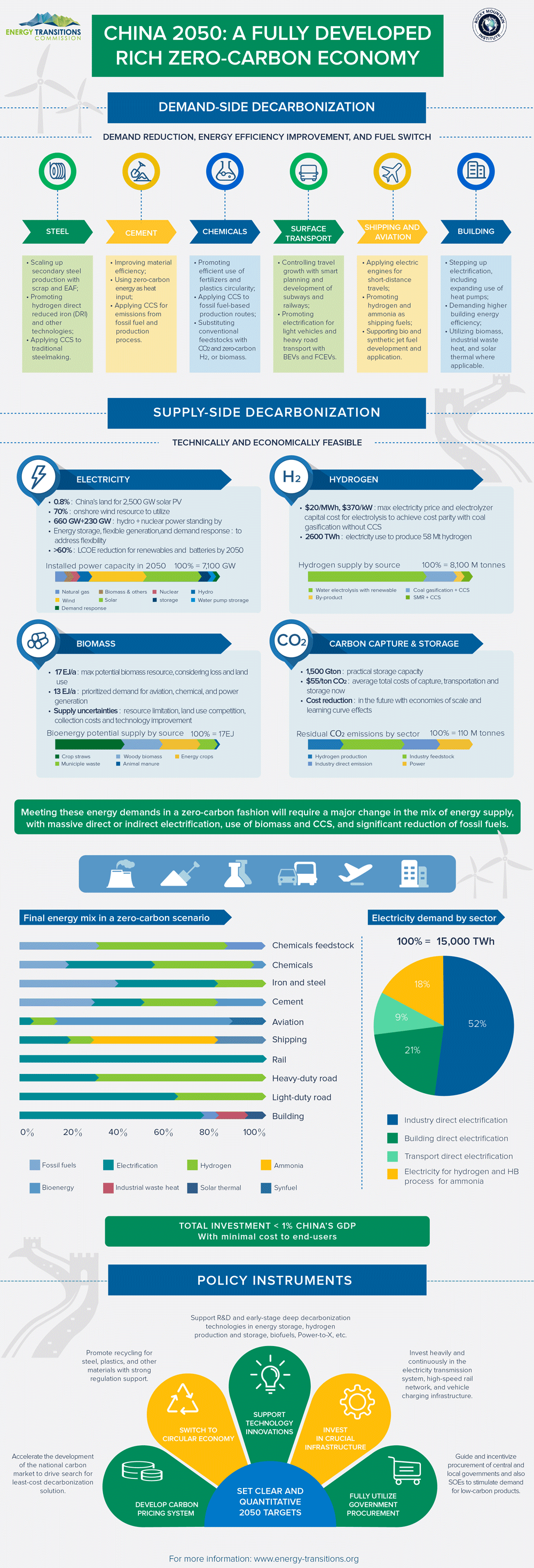
The Paris Agreement committed the world to limit global warming to well below 2°C and to keep it as close as possible to 1.5°C above preindustrial levels. The latest IPCC report has warned the world of the major negative impacts on humanity and the planet of a rise in global temperatures of 1.5°C, and the even more dramatic consequences of 2°C global warming. It therefore urges the world to aim for 1.5°C and recommends achieving net zero CO2 emissions globally by 2050.
The Energy Transitions Commission (ETC)—a coalition of business, finance and civil society leaders from across the spectrum of energy producing and using industries—supports the ideal objective of limiting global warming to 1.5°C and, at the very least, well below 2°C.
To reach this target, it is essential for the world’s energy and industrial systems to achieve net-zero CO2 emissions within themselves. China, as one of the world’s major CO2 emitters, has a strategic role to reduce and eventually eliminate emissions from all sectors by mid-century, given its scale of economy and its crucial role in the global value chain.
Following the ETC’s Mission Possible global report, the ETC launched a new report, China 2050: A Fully Developed Rich Zero-Carbon Economy, together with Rocky Mountain Institute’s (RMI’s) China team. It sets out an optimistic but realistic message—it is technically possible to decarbonize the harder-to-abate sectors of the Chinese economy by mid-century, when China is well placed to become a developed economy. The transition would cost less than 1 percent of GDP, with only a minor impact on consumer prices. The technologies required to achieve this already exist, although several still need to reach commercial viability and localization in China. Also, the feasibility of the transition does not rely on the assumption that there will be fundamental and currently unknown research breakthroughs. Furthermore, China is well placed to gain technological competitive advantage from the transition to net zero emissions.
